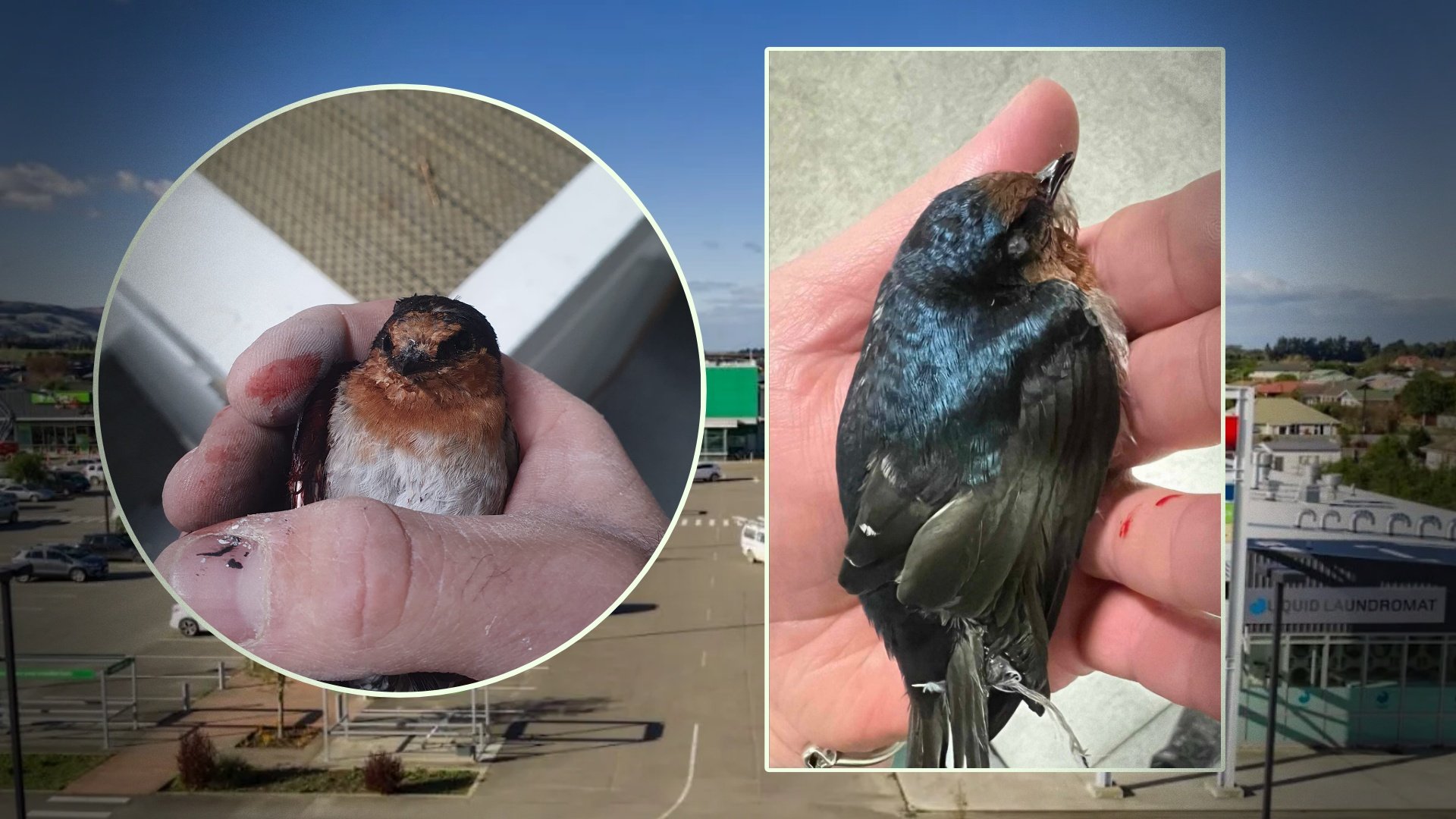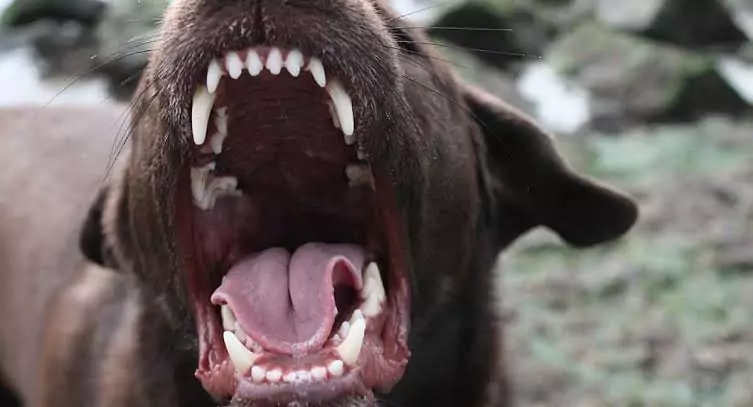Dying birds after repellent used at Brackenfields shops in Amberley | Photos: Supplied
Retailers in Amberley are angry following the use of a “cruel and inhumane” glue-like substance to exterminate birds in the town’s shopping area.
The incident came to light earlier this week after a pest control contractor, hired by the property management of Brackenfields shops, applied the bird repellent substance along overhanging metal beams.
The grim aftermath, with birds found dying in a distressing manner, was noticed by shop owners after the long weekend on Tuesday.
Greenpeace has tried to get the glue and gel repellent substances banned in New Zealand saying “Hot Foot and other polybutene based bird repellents are a cruel and inhumane method of pest control.
“It is a sticky glue like substance which burns on skin contact and can trap birds and small animals, literally gluing them to buildings.
“It does not discriminate between native and non-native birds and the injuries that birds sustain may require them to be euthanised.”
A local resident, who chose to remain anonymous, shared the community’s dismay over the incident.
“My friend, a shop owner, was devastated by the cruelty of the method used to kill the birds and was on the phone crying about the incident.”
The shop owner and her partner tried to save some of the dying birds and following advice of the SPCA, they transported any surviving birds to a veterinarian.
However the birds’ injuries were so severe that euthanasia was the only humane option the resident said.
Property management company responds
Point Property Management, which runs the Brackenfields, wouldn’t confirm if Hot Foot was used.
But Operations Director Louise Tanner said Point Property Management had received complaints that bird excrement was creating a potential hygiene issue for food and other retailers and customers at the Brackenfields Retail Centre.
“We immediately contracted an experienced local pest control company who recommended a non-toxic gel product that would act as a deterrent.
“This method was implemented to bring relief to the food and other retailers as well as customers at the centre.
“As soon as we were made aware the gel had harmed a small number of birds, rather than discouraging them from the space, we instructed our contractor to remove the gel residue – which was completed yesterday.
“We would like to apologise for any concern the use of this gel has caused and want to reassure customers this product will not be used at the centre again.
“We are also investigating alternative bird deterrent methods to identify a solution that ensures them no harm – while helping us maintain the highest levels of hygiene and cleanliness around retail stores.”
SPCA confirms investigation
Meanwhile, SPCA has confirmed to Chris Lynch Media it’s investigating a “complaint about the use of a gel bird deterrent product that is resulting in swallows being coated and trapped.
“As such, no further comment can be made relating to the specifics of the investigation” a spokesperson said.
“SPCA opposes the use of methods of population control or management of wild animals that lead to prolonged death and suffering of target or non-target animals.
“We acknowledge the distress it can cause members of the public to witness the effects of such activity.
“There are several types of bird deterrent gels available to use in New Zealand that claim to act as a deterrent by causing a bird temporary discomfort due to their feet contacting the gel that has been applied in areas where they nest and roost.
“As we have seen in previous incidents, the use of sticky-like substances as a deterrent for unwanted birds can result in catastrophic consequences for the birds” the spokesperson said.
“SPCA advocates that people should assess and modify their own behaviour as a first step if they are having issues with nuisance from animals. Steps should be made to remove attractants (e.g., food and shelter), and physical exclusion devices and deterrents should be considered. Deterrents that can cause severe welfare harm such as bird repellent gels must not be used.
“Animal management activities should only use methods of population control that minimise negative impacts to an animal, are target-specific, and with clear, achievable objectives that are monitored.
We urge people to consider other forms of deterrent or physical exclusion devices that do not lead to poor welfare outcomes for birds.”









